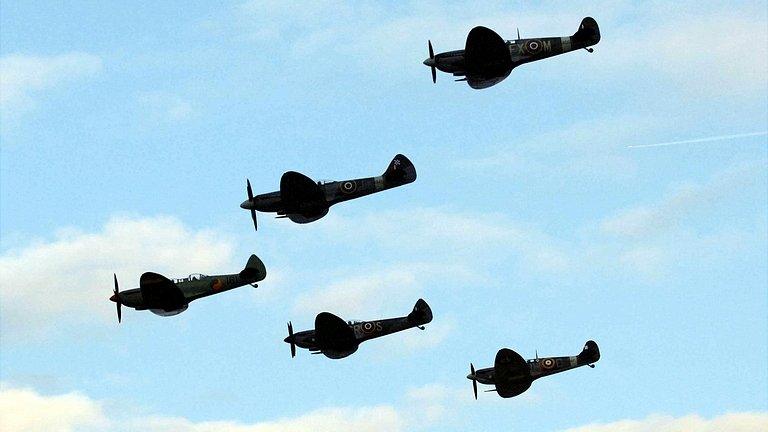Derby Rolls-Royce air raid remembered 75 years on
- Published
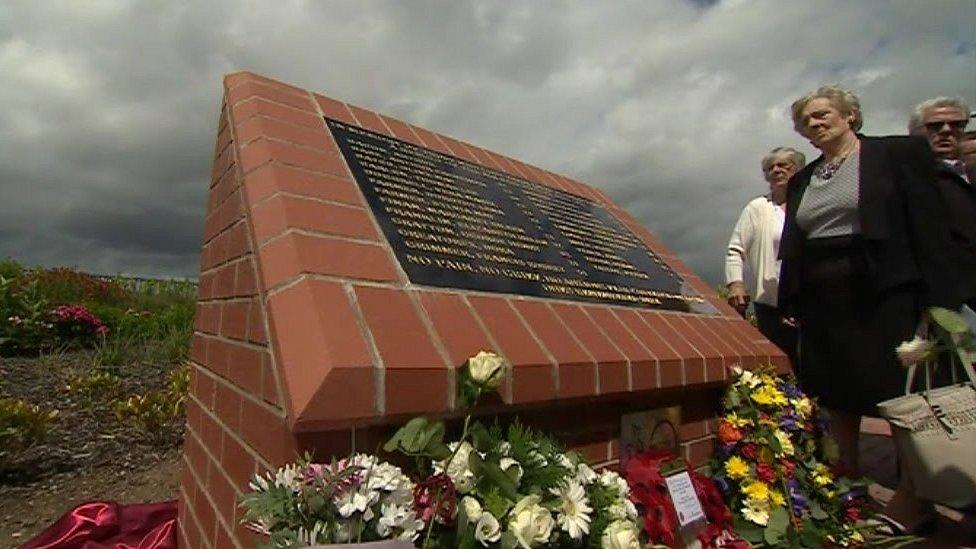
More than 100 relatives and dignitaries attended the ceremony
A ceremony has been held to mark the 75th anniversary of an attack at the heart of the British war effort.
On 27 July 1942 a lone German aircraft dropped four bombs on the vital Rolls-Royce Merlin engine factory, killing 23 people.
It was Derby's most lethal air raid and took took air defences and factory staff completely by surprise.
A new plaque was unveiled near the Marble Hall, a preserved part of the original factory.
The Merlin engine was a major contributor to Allied victory and is credited with crippling German forces.
It was used in a number of aircraft types, including the Hurricane and Spitfire fighters that fought in the Battle of Britain.
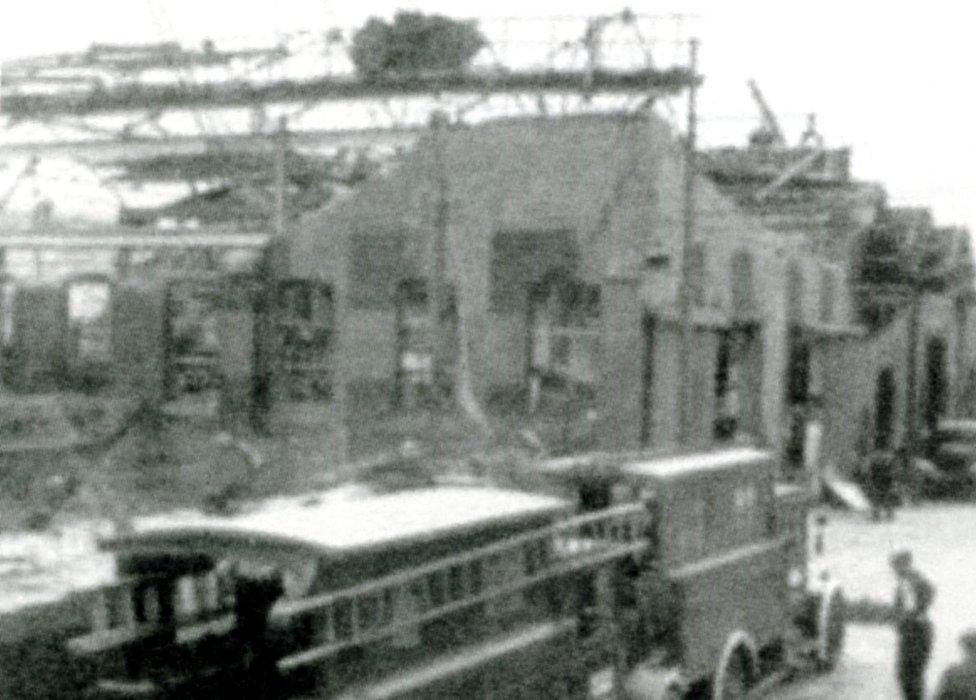
Few photographs of the damage caused by the raid survive
The engine factory had survived several previous air raids but was caught off-guard by the solo German bomber, which had evaded fighter cover due to low cloud cover.
The hit was further helped by the fact it struck just as lookouts were changing shifts and the main workforce was arriving.
"There was no warning - I was just bundled under the table," said Mick Whitehead, who was was five years old at the time.
"The house shook, but it was only afterwards we saw how much damage had been done, with a piece of steel in next door's roof."
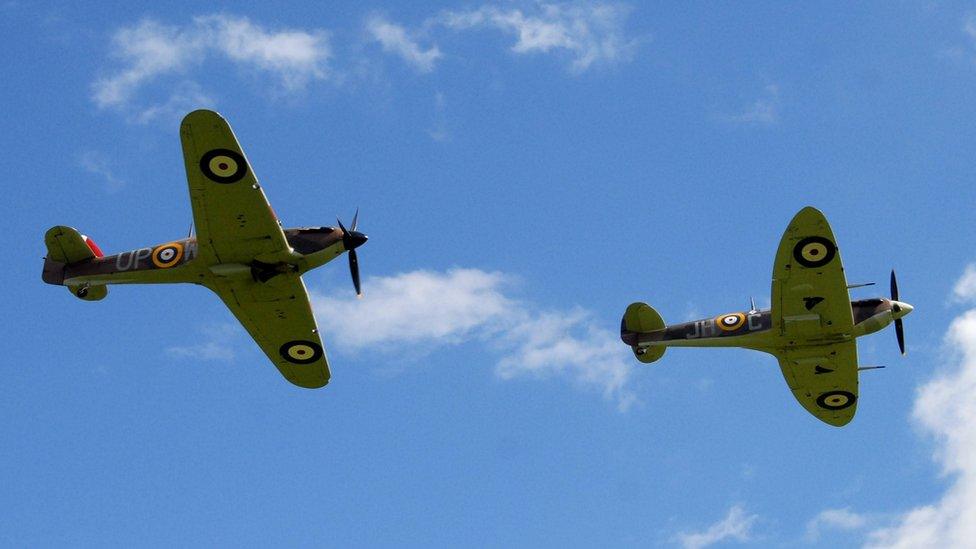
Rolls-Royce Merlin engines powered Hurricanes and Spitfires during the Battle of Britain
Of the four bombs dropped, one hit the factory while the others hit nearby houses. The plane also sprayed the packed streets with machine-gun fire.
Twelve people died in the factory, the rest outside. The youngest victim was two-year-old Sylvia Farmer, the oldest was George Gratton, 62.
Such was wartime secrecy the Derby Evening Telegraph referred only to the sneak attack as on a "north Midlands town".
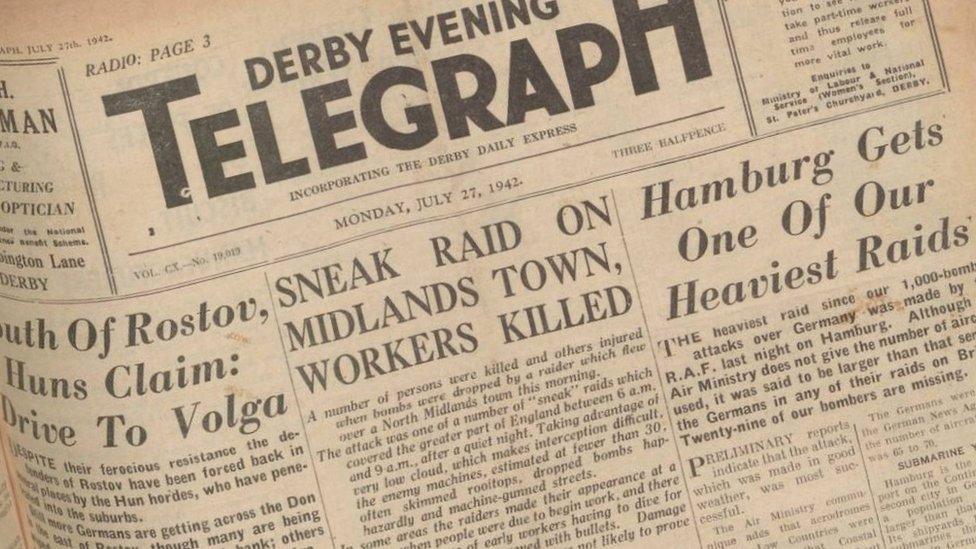
Wartime censorship meant even the town's newspaper was vague about the details
War historian Geoff Simpson said: "Much Luftwaffe intelligence was poor and the British gradually became better at intercepting attacks and distracting enemy aircraft from major targets.
"If the enemy could have found a way to eliminate Rolls-Royce Derby and other major factories belonging to the company, then the Allied war effort would have suffered a severe setback."
The dedication ceremony in Nightingale Road will include a minute's silence to remember the lives lost.
Mr Whitehead, who organised the event, added: "I am very pleased we have finally got this memorial, it will pay tribute to all those who died and their loved ones."
- Published31 October 2015

- Published8 August 2012
